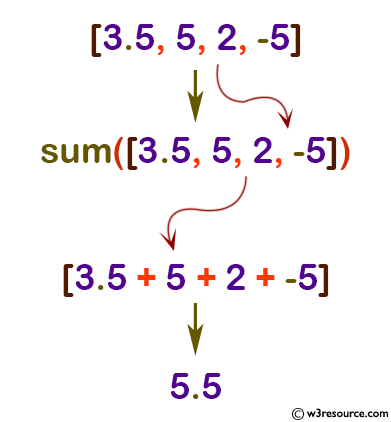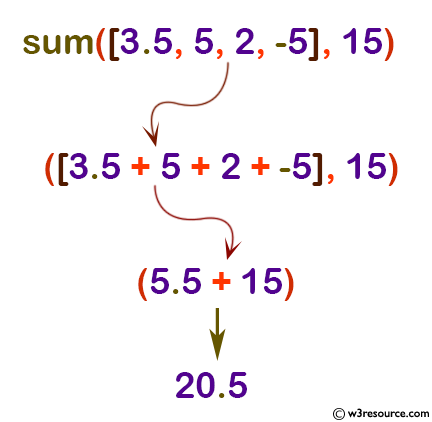Python: sum() function
sum() function
The sum() function is used to get the sum of all items in an iterable.
Version:
(Python 3.2.5)
Syntax:
sum(iterable[, start])
Parameter:
| Name | Description | Required / Optional |
|---|---|---|
| iterable | An iterable (list, tuple, dict etc) whose item's sum is to be computed. | Required |
| start | A value that is added to the return value. | Optional |
Return value:
The sum of the given iterable.
Example: Python sum()
num = [3.5, 5, 2, -5]
# start parameter is not provided
numSum = sum(num)
print(numSum)
# start = 15
numSum = sum(num, 15)
print(numSum)
Output:
5.5 20.5
Pictorial Presentation:

Pictorial Presentation:

Python Code Editor:
Test your Python skills with w3resource's quiz
